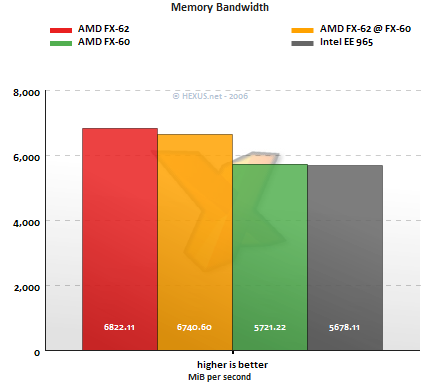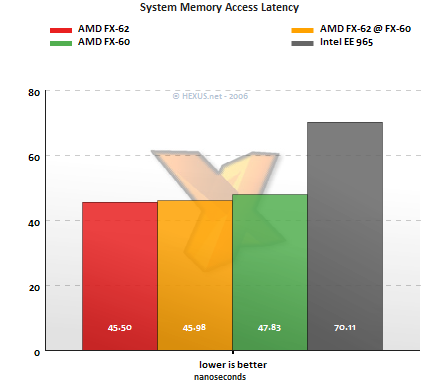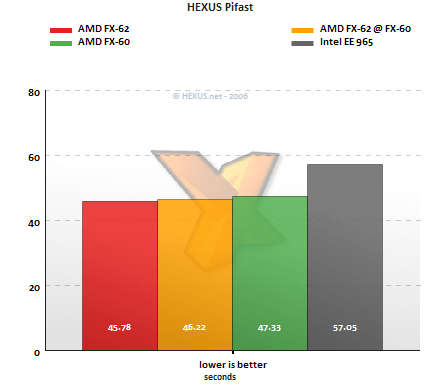Memory Tests
The new integrated memory controller, like before with the DDR version on S939, will be responsible for a lot of the new AM2 processor range's overall performance, mostly as outlined in the K8 chat earlier. As noted, we test FX-62 at FX-60's clocks, to do a (hopefully) like-for-like test that only really compares memory controller and/or core logic.Memory Bandwidth

With single-sided modules as seen in the 1GiB TwinX2 kit, the FX-62's memory controller operates at around 50% efficiency. Not brilliant, but still enough to show FX-60 a clean pair of heels. What's interesting is that with dual-sided sticks, memory bandwidth shoots up to around 8000MiB/sec, or nearly 65% efficiency, easily posting the best main memory bandwidth figures on consumer PC hardware to date.
A good start, with one of the two hurdles overcome.
Memory Latency
The second hurdle is making sure main memory can be accessed quickly. We told you the K8 core doesn't like to be kept waiting, so engineering a low-latency DDR2 memory controller is crucial to AM2 CPUs doing well on their new socket with their new memories. It's something Intel haven't managed to do to date, with their off-chip controller.
AMD succeed at engineering effort number two, keeping access latency very low even with higher internal latencies on the memories themselves, which contribute to the access time shown.
So the memory controller is up to snuff, allowing AM2 to compare favourably to 939 at the same clocks, with the new memory type, where system memory is concerned. Let's prove that with our own Pifast test.
HEXUS Pifast

And so the stage is set for FX-62 to take the AMD performance crown away from FX-60, and it'd likely do it even at 2.6GHz. Let's see how that pans out across the rest of our test suite, starting with some single-threaded benchmark tests.









